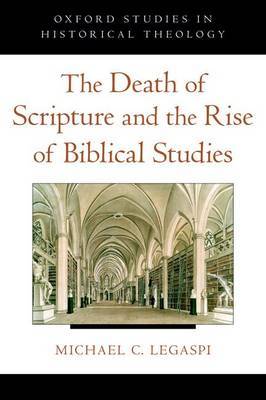
In contexts shaped by skepticism and religious strife, interpreters increasingly operated on the Bible as a text to be managed by critical tools. These developments prepared the way for scholars to formalize an approach to biblical study oriented toward the statist vision of the new universities and their sponsors. Focusing on a renowned German scholar of the period, Johann David Michaelis (1717-1791), Legaspi explores the ways that critics reconceived authority of the Bible by creating an institutional framework for biblical interpretation designed to parallel-and replace-scriptural reading. This book offers a new account of the origins of biblical studies, illuminating the relation of the Bible to churchly readers, theological interpreters, academic critics, and people in between. It explains why, in an age of religious resurgence, modern biblical criticism may no longer be in a position to serve as the Bible's disciplinary gatekeeper.
Readership: Suitable for students and scholars of Biblical criticism and the Enlightenment.
Table of contents
- From Scripture to Text
- Bible and Theology at an Enlightenment University
- The Study of Classical Antiquity at Göttingen
- Michaelis and the Dead Hebrew Language
- Lowth, Michaelis, and the Invention of Biblical Poetry
- Michaelis, Moses, and the Recovery of the Bible
Bibliography
"Theologians should thank [Legaspi] for initiating what one hopes will be a long and fruitful, if not irenic, conversation."--Theological Studies
